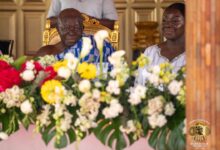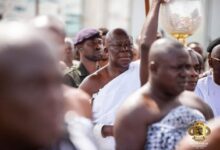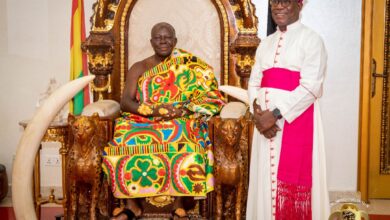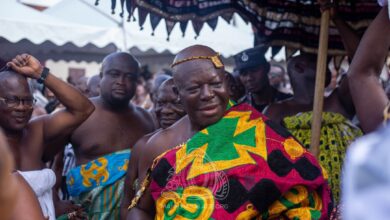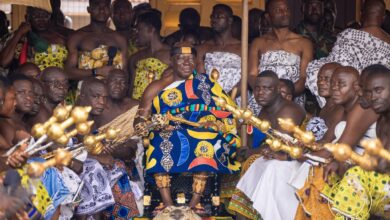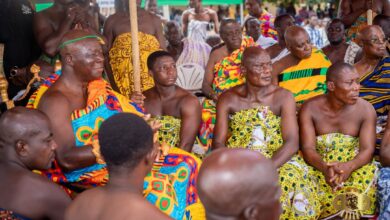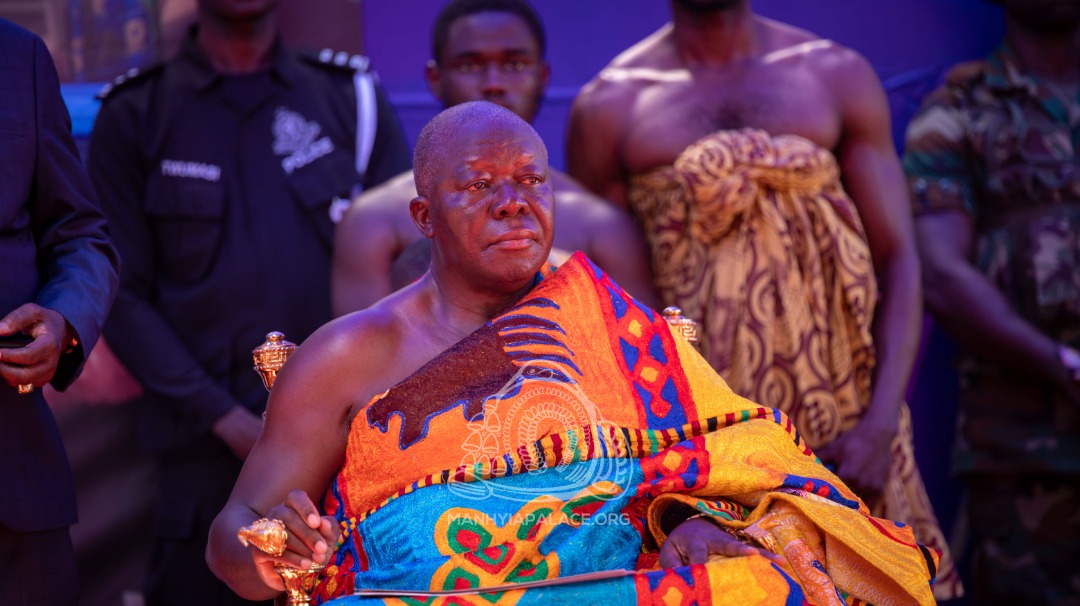Otumfuo@25: Asantehene Hosts Domiciled Ethnic Groups
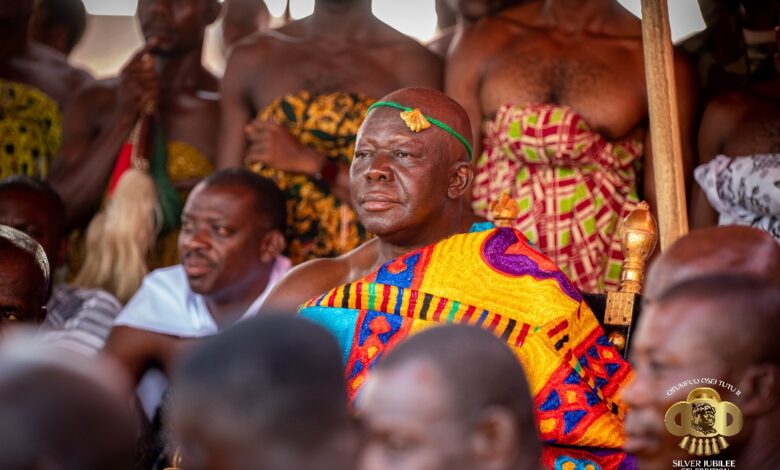
As part of his Silver Jubilee Celebrations, Asantehene Otumfuo Osei Tutu II hosted 43 ethnic groups domiciled on his land at the Manhyia Palace in Kumasi on Wednesday, April 24, 2024.
It was an opportunity for the various groups to exhibit their tradition and culture before the King as well as pay homage to him on the “Ahoho Da”.
It was also an affirmation of the bond and friendship between Asanteman and these groups.
Present at the event were dignitaries including Ogyeahohoo Yaw Gyebi, the President of the National House of Chiefs and Paramount Chief of Sefwi Anhwiaso Traditional Area; Naa Puowele Karbo III, the Vice President of the National House of Chiefs and the Paramount Chief of the Lawra Traditional Area in the Upper West Region; and the Minister for Chieftaincy and Religious Affairs, Stephen Asamoah Boateng.
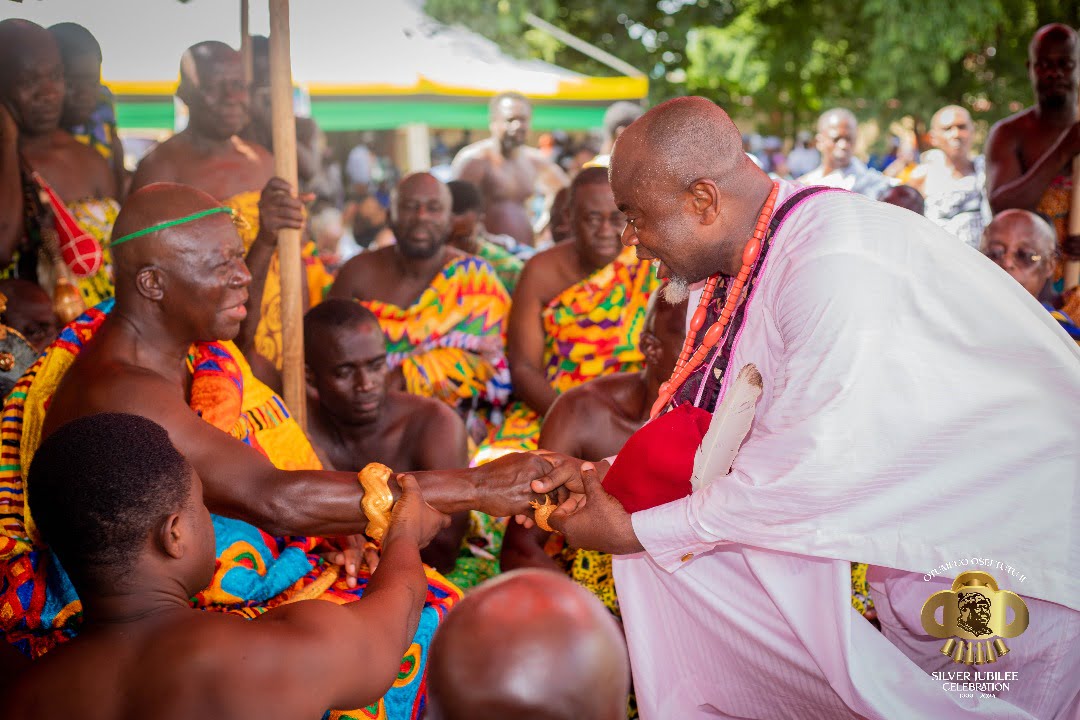
Ethnic Groups
Forty-three ethnic groups joined the event which coincided with the third Awukudae festival, displaying and blending their colourful culture.
They include the Banda community, the Bargu community, the Baribari community, the Basari community, the Bimorba community, the Bisa community, the Bulsa community, the Buzu community, the Chaala community, the Chamba community, the Chilinga community and the Chokosi community.
The Dagomba community, the Dandawa community, the Ewe community, the Fante community, the Frafra community, the Fulani community, the Gurushie-Sissala community, the Gonja community and the Hausa community also made a show.
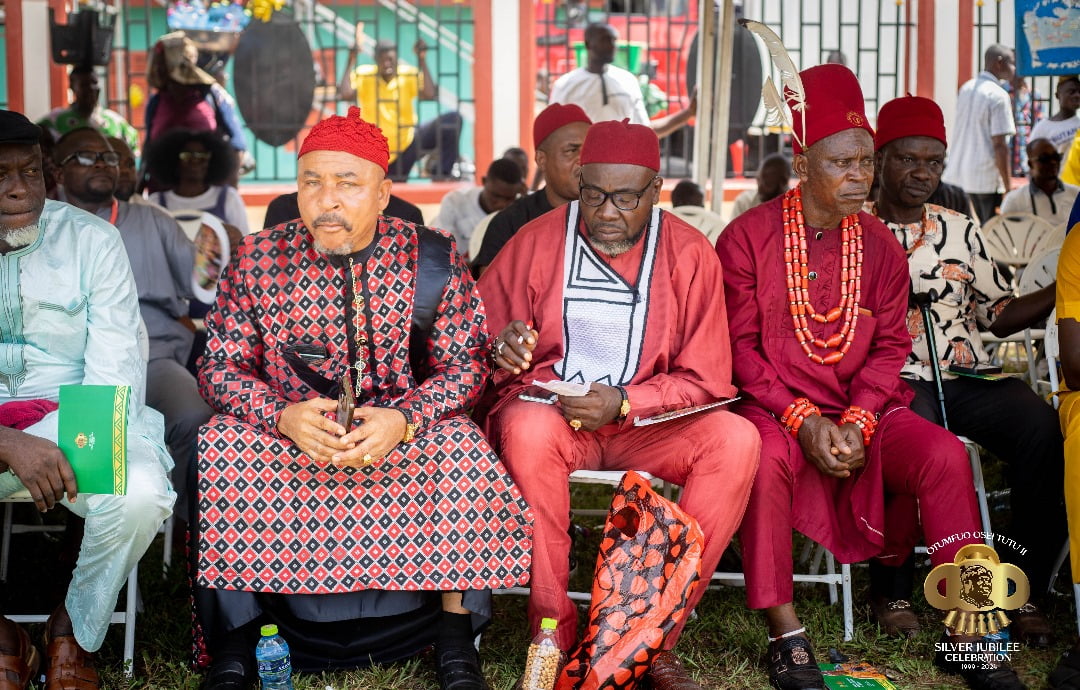
Other participants were the Igbo community, the Kado community, the Kantoshi community, the Konkonba community, the Kotokoli community, the Kusasi community, the Katsina Nankani community, the Kodogo community, the Kwahu Community, the Mamprusi community, the Moshie community, the Nzema community, the Nufawa community and the Songhai community.
The Summa community, the Tuba community, the Wala community, the Wangara community, the Yadega community, the Yanga community, the Yoruba community and the Zabarma community were not excluded.
Homage
Each of the groups and their heads took turns to pay homage to the King.
While paying homage, Asanteman Kwahuhene Nana Akwasi Abankwa requested for an allocation of a place for people from Kwahu in Asanteman just as is seen in Anloga, Fante New Town and other places.
“We see Fante New Town, Moshie Zongo and others and we would like to request that such a place be allocated to us. We also plead for Kwahu Town in Asanteman.”
The leader of the Yoruba community from Nigeria called for an enhanced alliance between their group and Manhyia Palace.
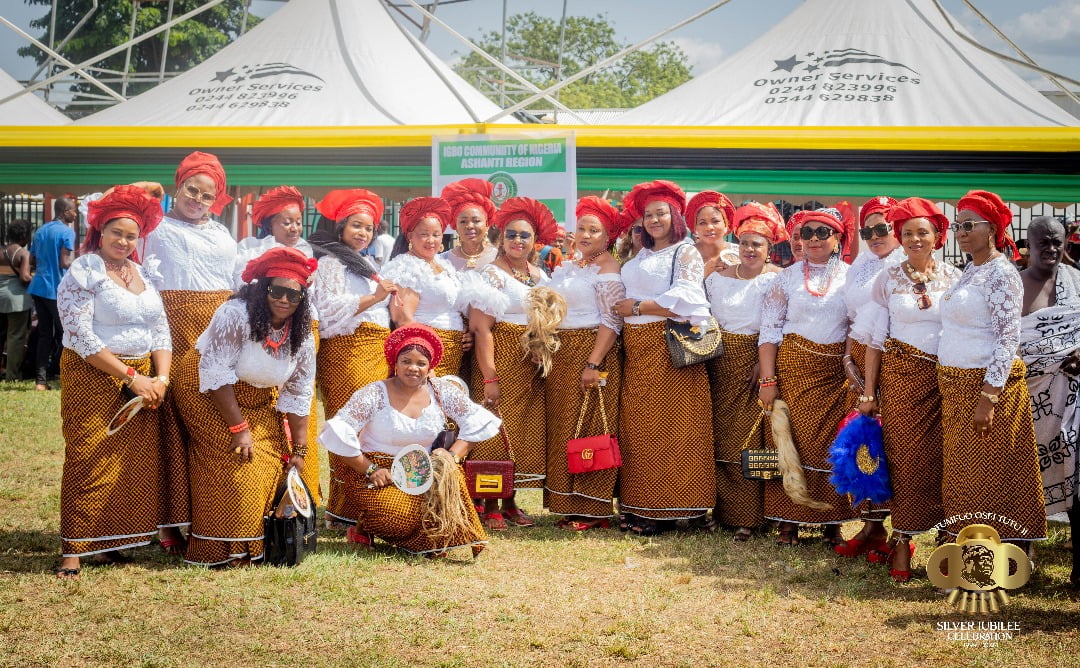
The leader of the Fulani community described Otumfuo as the “best King so far” as he outlined some achievements he has chalked and the enviable legacy he has created for his name.
Frafrahene and President of the Council of Zongo Chiefs, Naaba Musah Akanbonga used the occasion to pray for blessing for the King.
“We are happy today. Many people call His Majesty King Solomon because of his wisdom but we pray that he achieves more than Solomon achieved. We pray that through him the aroma of Asanteman diffuses into all parts of the world. Our reception in Asanteman has been one of hospitality. We thank him so much.”
Meanwhile, the Zongo community gifted the King a white horse.
Historic Event
In a welcome address, Otumfuo Akyeamehene Nana Nsuase Poku Agyeman III characterized the event as historic, noting it is the first of its kind.
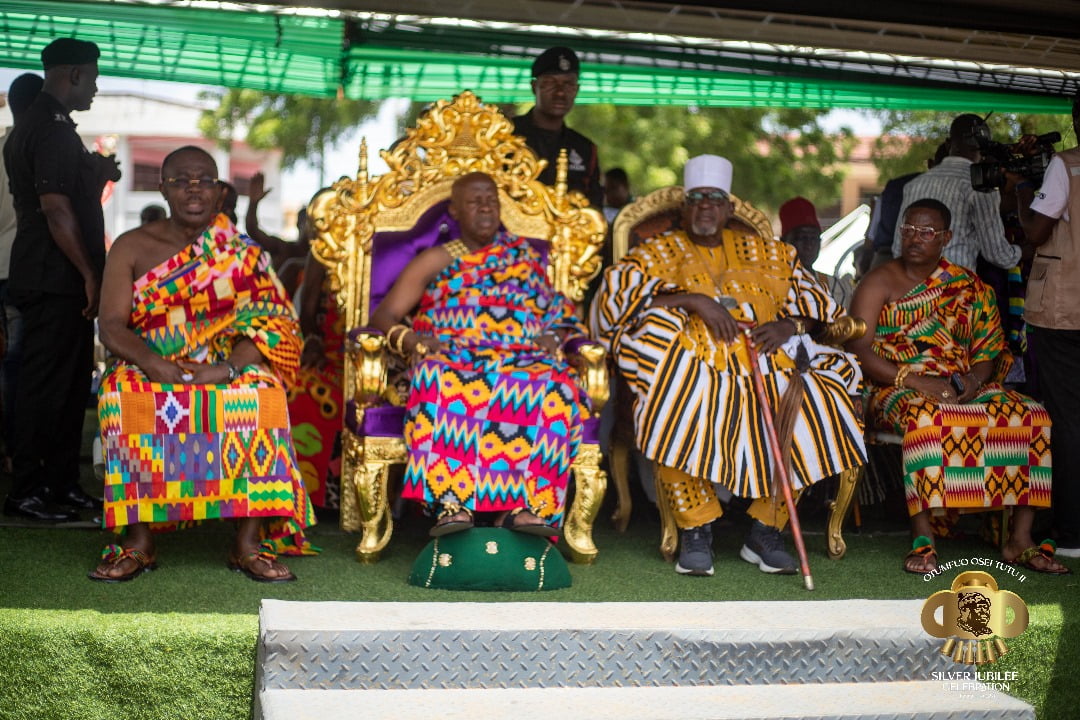
“Over here, we have towns named after different ethnic groups such as Accra Town, Moshie Zongo, Fante New Town and even Atenga Junction. Some of these people come from neighbouring countries like Burkina Faso, Niger, Mali, Togo and Nigeria. Their forefathers made the journey here and procreated this current generation making them a part of us.”
“Otumfuo has already indicated that Asanteman was not built with only Asantes but people of different origins who came to stay. We live in peace, and love and we recognize that they even fight for the cause of Asanteman and so he deemed it imperative to include them in plans to celebrate his Silver Jubilee.”
He also stated that the event reinforces the bond between Asanteman and all the ethnic groups.
In his address, Otumfuo said the event is evidence for unbelieving hearts to witness the friendship, love and true nature of Asantes when it comes to reception.
“This will enable everyone to know that Asantes do not discriminate. Everyone who joins us is afforded the enabling atmosphere to intermarry, ply their trade and work together. We live together in peace and harmony. Many of the people who live here do not have as much relations with their hometown as they do here. An example is Mr Fugah.”
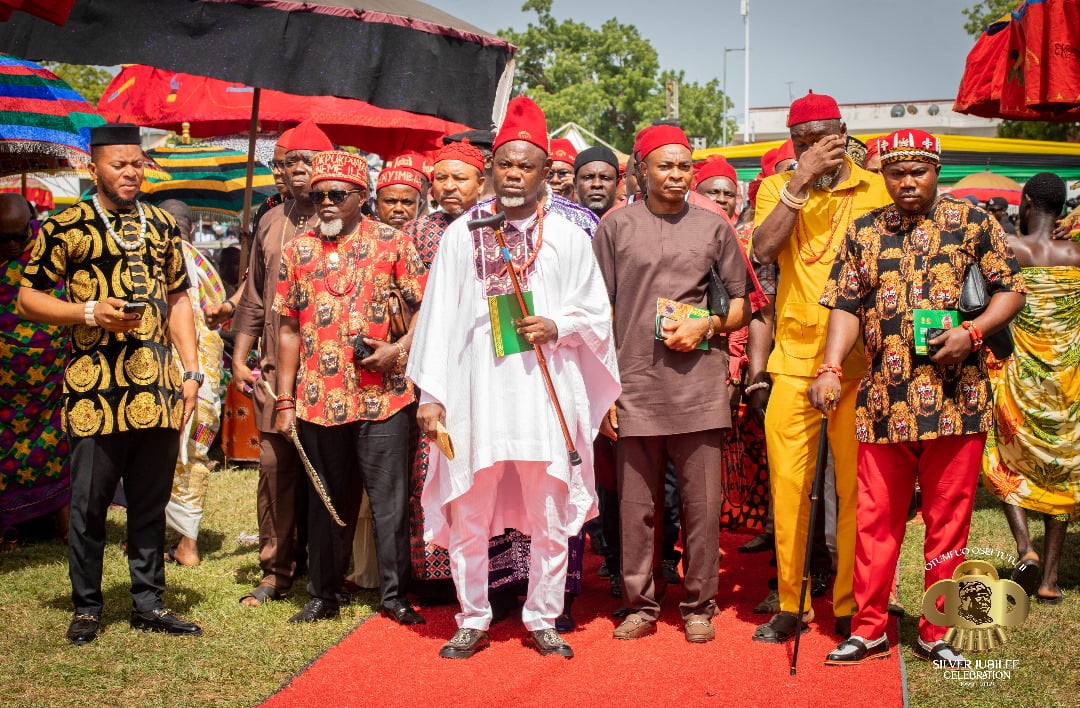
He further emphasised the point that Asantes are not greedy and self-centred noting, “In the olden days, when we went to war, we never imposed our rule on the people we conquered. We allowed their leaders to continue ruling. If Asantes are greedy, why didn’t we impose our choice of leaders on them? We lived peacefully with them. We are not greedy and that is why a lot of ethnic groups have been able to live with us till now today and it is a testament to our hospitality.”
He also recognizes that all these groups also afford him the needed respect and regard him as their grandfather.
“For the past 25 years, whenever my car gets to Zongo, they stand and pay homage to me. They have never failed at that because they regard me as their grandfather. We love them. We are well aware that they ply their trade here and we will do everything to make this place a home to them.”
He added, “All you need to do is to be law-abiding.”
His Majesty urged Ghana to take a cue from the relationship Asanteman has held with different ethnic groups over the years which he noted has contributed to evolution.
“This is a lesson to Ghana that togetherness is keen for development. You won’t find Anloga, Fante New Town anywhere. We have Zongo and this has been emulated in different places now. Leadership positions must be allotted to competent people and not based on their ethnic backgrounds. Asante Kotoko was established and groomed by the likes of Salisu, Dogo Moro, Abukari and Malik. We recognized them as our own. Why did we name the Sports Stadium after Baba Yara when he was not an Asante? Because he was recognized as one of us. All we need as a country is unity.”


